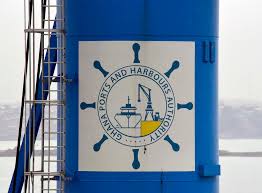The Ghana Ports and Harbours Authority (GPHA), says it was compelled to implement the revised tariff due to the current global economic challenges.
These include inflation and currency depreciation which GPHA says have increased its operational cost.
In a statement issued Thursday in reaction to concerns raised by the Ghana Union of Traders Association (GUTA), the GPHA also explained that as in all other increments in the past, “the rates of increment in this year's tariff adjustment were informed by the outcome of a comparative port tariffs studies we conducted in our neighbouring Ports of Lome and Abidjan, to ensure that at every given time, our ports will remain competitive in terms of price and quality of services.”
Consequently, it said “…even with the increment of 1st August 2023, overall, our port tariffs remain competitive compared to our neighbours.”
GUTA president, Dr. Joseph Obeng had protested the upwardly reviewed tariffs, saying it was “unfortunate and unacceptable” because it will overburden businesses. He therefore called for its suspension and a stakeholder engagement to ensure all outstanding issues are exhausted.
But the GPHA says its operations, like any other business, is affected by increases in the price of fuel, water, electricity, machinery and equipment among others, and “While we understand that tariff increment may have short term effect on businesses, it is essential to maintain a delicate balance between cost recovery and providing quality services.
The statement said the “GPHA is equally concerned about the low traffic volumes, but that is no reason for the Authority to operate at a loss,” after investing millions of dollars in upgrading port infrastructure”, and that a well maintained and efficient port system will in the long run contribute to a reduction in operational costs for businesses, enhance productivity and facilitate smoother trade operations.
Our investigation revealed that the decline in cargo volumes cannot be attributed to GPHA's service charges. GPHA's charges as a component of the total cost of cargo clearance in the port is about 6%. We are currently conducting a study on the individual contributors and their share to total cost of cargo clearance in our ports, so that together, we can engage and find possible solutions.
Below is the full statement issued by the GPHA.



Latest Stories
-
WAFCON 2024: ‘We have destiny in our hands’ – Black Queens boss Bjorkegren
3 hours -
CIHRM Ghana confers chartered status on 28 members, 170 associates
5 hours -
Government gross financing needs to remain elevated; debt service obligations are large – IMF warns
5 hours -
Deloitte appoints George Ankomah as Deputy Chair of Africa Board
5 hours -
Palmer inspires Chelsea to victory over PSG to claim Club World Cup
5 hours -
Kwame Dadzie: Bash King Paluta but don’t crush him
5 hours -
T-bills auction: Government fails to meet target again; interest rates go up
5 hours -
Beyond Publications and Prestige: Ghana scholarly society charts the path for research that drives real development
7 hours -
I’m not too old to be ignored, I’ve sacrificed for NPP – Kufuor laments exclusion
8 hours -
Sinner beats Alcaraz in four sets to clinch Wimbledon title
8 hours -
MTN Ghana champions youth mentorship drive at UG with focus on digital skills
9 hours -
Kufuor demands respect and inclusion; laments marginalisation by NPP
9 hours -
Black Queens outstanding allowances has been paid – Ghana’s Ambassador to Morocco
9 hours -
Mobik Energy CEO raises alarm over Tarkwa’s disappearing rivers and environmental neglect
10 hours -
Former Nigerian President Muhammadu Buhari dies in London
10 hours

